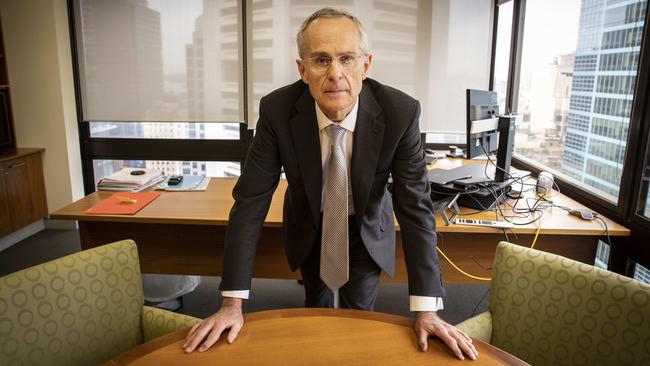Here’s news — we’ll hold Facebook and Google to account

But no one could have imagined that almost 250 years on, the printing press would have given way to the digital age. We now live in a world of instantaneous communication where everybody with a digital device is connected and empowered.
The benefits to consumers have been immense, but so too has the disruption. Nowhere is this more apparent than with respect to the role and viability of the traditional media outlets.
As the technology of the digital platforms has evolved, so too has their market dominance.
In particular, Google and Facebook, which are already among the most powerful and valuable companies in the world.
For every $100 spent by advertisers in Australia on online advertising, excluding classifieds, $47 goes to Google, $24 to Facebook and $29 to other participants. In Australia, this market is worth almost $9bn a year and has grown more than eight-fold since 2005.
In a groundbreaking report that took 18 months to prepare, the Australian Competition & Consumer Commission found that more than 98 per cent of online searches on mobile devices are with Google, while Facebook has approximately 17 million users who are connected to its platform for at least half an hour a day.
This has created a level of market concentration and power that was never envisaged by our regulatory system.
This was why we tasked the ACCC to facilitate the development of a voluntary code of conduct governing the relationships between digital platforms and media businesses, the goal of which was to protect consumers, improve transparency and address the power imbalance between the parties.
The initial intention was to have a code finalised by no later than November.
The government made clear at the time were an agreement not be forthcoming, it would look at alternative options, including the creation of a mandatory code.
However, since that announcement late last year, it has become clear that insufficient progress with the parties has been made.
On the fundamental issue of payment for content, which the code was seeking to resolve, there was no meaningful progress and, in the words of the ACCC, “no expectation of any even being made”.
It is in this context that the government has taken the decision to move from a voluntary to a mandatory code, the preparation of which will be led by the ACCC.
The code will include a number of provisions, including those related to value exchange and revenue sharing; transparency of ranking algorithms; access to user data; presentation of news content; and the penalties and sanctions for non-compliance. The intention is to have a draft code of conduct released for comment by the end of July and legislated shortly thereafter.
It is only fair that the search engines and social media giants pay for the original news content that they use to drive traffic to their sites.
By way of example, the ACCC found that between 8 and 14 per cent of Google search results included reports from news websites.
Other academic studies have found that the majority of people who access their news online do so via social media or methods other than going to the original news source.
Australia will not be the first country that seeks to hold the digital giants to account and regulate payment for content.
However, to date the global experience underscores the challenge we face.
In 2014, Spain passed legislation requiring Google to pay news outlets for the article extracts they published.
In response Google closed Google News and has not reopened this service since.
Last year, France was the first EU member state to implement a European Council Directive to protect the copyright of content where it is reproduced online.
This would require authorisation and compensation for material reproduced.
In response, Google said it would not pay for content and not display French news media unless able to do so for free.
French news outlets saw this as an abuse of market power about which the French regulator is now investigating.
We are under no illusions as to the difficulty and complexity of implementing a mandatory code to govern the relationship between the digital platforms and the news media businesses.
However, there is a need to take this issue head-on.
As the Prime Minister has said, the laws of the digital world should reflect as far as possible the laws of the physical world.
We are not seeking to protect traditional media companies from the rigour of competition or technological disruption.
Rather, to create a level playing field where market power is not misused, companies get a fair go and there is appropriate compensation for the production of original news content.
Over the next three months there will be much to do as a mandatory code is developed and Australia seeks to become the first country in the world to successfully require payment for content.
There is too is much at stake — nothing less than the future of our media landscape.
Josh Frydenberg is the Treasurer of Australia



When the First Fleet landed on our shores in 1788, stacked on board was a second-hand printing press. It soon became the centre of a busy operation.